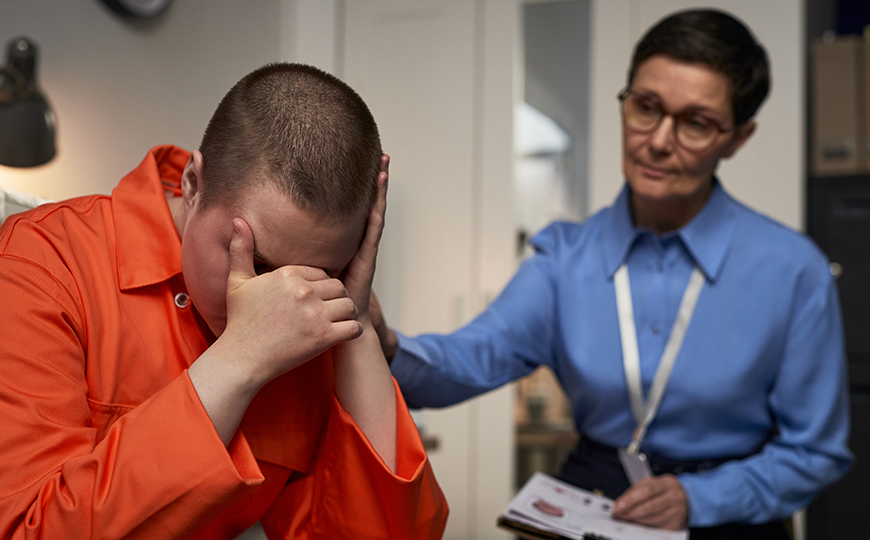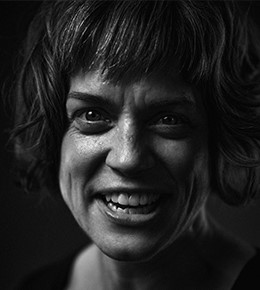https://www.infirmiere-canadienne.com/blogs/ic-contenu/2025/10/20/jai-serre-un-detenu-dans-mes-bras/
How one decision changed my outlook on my career, and why I have no regrets
 istockphoto.com/DragonImages
istockphoto.com/DragonImages
Within the prison population, there were those who, after a collection of unfortunate circumstances and a handful of bad decisions, found themselves incarcerated. Nursing staff were instructed not to review the charges of the inmates, lest it influence our ability to provide care.
As a nurse with nearly two decades of experience and a handful of varying related credentials, I have been blessed with a career full of unique opportunities, some of which include working overseas in Central America and East Africa, as well as a spell up above the Arctic Circle in remote Inuit communities. I’ve also had my fair share of acute care experience as well as teaching in post-secondary institutions.
 Ryan Heatherington Keys
Ryan Heatherington Keys
“If you find yourself in a work environment where you can’t be your authentic self, like I did, I encourage you to believe in yourself and consider finding something else that you find fulfilling,” Ashley Holloway says.
Aside from a great deal of student loan debt that will take me another 10 years to pay off, these combined experiences have also offered me a great deal of insight into people. But not just people; these experiences have given me an understanding of how the context in which people find themselves in often dictates both the choices they make as well as the availability of choices afforded to them.
With this knowledge in my pocket, four years ago I decided I might try working in a prison. Excited at the opportunity to have an impact on individuals who I felt could use some empathy — and feeling as though I had enough skill and experience to help — I dove into the work with both feet. Despite my years of nursing and collection of letters after my name, I was wholly unprepared for what came next.
Mental health and addictions crises
Not only were addictions rampant throughout the inmate population, so were mental illnesses. No Canadian who keeps current with the news is immune to the stories of the burgeoning mental health and addictions crises, but somehow seeing it in person in its rawest form was a reality check I hadn’t anticipated.
Within the prison population, there were those who, after a collection of unfortunate circumstances and a handful of bad decisions, found themselves incarcerated. Nursing staff were instructed not to review the charges of the inmates, lest it influence our ability to provide care. This was, quite frankly, just fine with me.
While there were some inmates with whom both nursing staff and correctional officers knew by sight due to their repeated “admissions,” there were also inmates who had no previous encounters with the justice system. I guarantee you not a single one of those men woke up that morning imagining themselves going to bed in a prison.
I distinctly remember the night I decided I needed to leave my job at the prison. I was working an evening shift, and, despite a population of over 500 inmates, there were only ever a handful of nurses on shift. This shift was no different. About halfway through it, a call came in from one of the units that an inmate was having a mental health crisis and was threatening self-harm. In instances such as this, the usual procedure was to bring the inmate to the clinic, accompanied by two correctional officers, where the nurse would conduct an assessment and decide on the next steps. Those next steps usually included either sending the inmate back to their cell once deemed safe or moving them to the high observation area where they would be secluded and under 24-hour surveillance. The idea here was to provide continuous monitoring and prevent injury to themselves or anyone else.
On this particular evening, the inmate was brought to the clinic and, having a free moment, I performed the assessment. I quickly realized that my role wasn’t to try to help this individual; instead, my role was to decide whether this person was indeed serious about his intentions of self-harm.
In his early 30s with a young family at home, the story this inmate told me of how he ended up in prison truly did tear at my soul. In sum, he was on the path to clean living when, through a series of wrong-place-right-time occurrences, he was caught with drugs on his person by the police. Even though he was in the process of disposing of the drugs at the time of his arrest, his previous criminal record intensified the situation, thus landing him in jail. In a society that is unaccustomed to male displays of emotion, his genuine anguish and despair as he sat sobbing before me was very unnerving. So, I hugged him. And what happened next changed the trajectory of my career.
Every shift became a battle
As soon as I hugged him, I felt the air shift in the room. While I believe a hug was just what he needed in that moment, that hug turned me into a pariah. No longer was I the “new nurse,” but I was now also the “inmate hugger.”
From that day forward, every shift was a battle. As nurses, we couldn’t move through the building, through any door, unless one of the officers controlling the door locks released them for us. For me, there was often endless waiting. It was a passive-aggressive move to literally and figuratively put me in my place. There were whispers and dirty looks, and it wasn’t only the officers; it was my nursing colleagues as well.
Yes, I do fully appreciate that my actions could have put me in danger, which, in turn, also put others in danger. I was born at night, but I wasn’t born last night. However, after many years of experience working with people, I used my professional judgment to assess the situation, and I made a decision. Faced with the same situation again, I would likely make the same decision.
I left the prison shortly thereafter to work elsewhere. The working environment had untenably shifted, and I realized I had limited powers to truly help people in that role. If you find yourself in a work environment where you can’t be your authentic self, like I did, I encourage you to believe in yourself and consider finding something else that you find fulfilling.
What I realized is that to make any change, to have any positive impact on individuals, families, and communities, I had to be outside of the system. I now find myself teaching health-care leadership, where I have the capacity to share my knowledge and experience in ways that promote empathy and understanding. While I will hopefully never know what it feels like to be on the other side of the cell walls, I do appreciate how, before you can walk in the shoes of another, you need to take your own shoes off first.
Ashley Holloway, MPH, LPN, G.Dip. GBLD, CD, is a nurse, writer, and editor who teaches writing and health-care leadership in Calgary and serves as editorial director at Unleash Creatives.
#opinions
#career-stage
#equity-social-justice
#nurse-patient-relationship
#nursing-practice
#nursing-roles
#patient-care